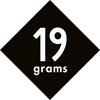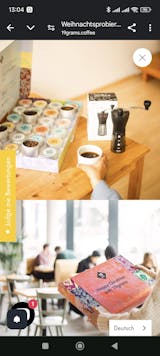What is "strong coffee"?
What is a "strong" coffee - an answer to a not so simple question.
In this article, you'll learn how to get the most out of your cup when it comes to caffeine. We talk about strong in taste and caffeine content, the difference between Arabica and Robusta coffee and answer the question whether an espresso contains more caffeine than a cup of filter coffee. We also explain where you need to tweak to get the most "kick" out of your coffee.
What does "strong" actually mean in relation to coffee?
If you ask coffee drinkers, a cup of coffee usually has to have two characteristics in particular: a strong taste and a high caffeine content.
Let's start with the question of taste.
If you believe the popular saying, strong coffee is one thing above all: bitter. This is due to the usually false association of "strong" with a very dark roast and over-extraction in the cup. (It's not entirely wrong, however, if you look at Robusta coffees - more on that later). Especially many bitter substances due to too much coffee powder, too much contact time of water and coffee. We will see why this is not quite correct in a moment. In any case, a high content of caffeine is meant - after all, coffee is supposed to give us a "kick". Your barista prefers to enjoy a coffee with strong flavours: higher complexity, fruitiness and sweetness in the cup.
Okay, let's get to the hard facts: How much caffeine is in a "regular" cup of coffee?
The answer (in terms of Specialty Coffee) is easier than you might think: the SCA (Specialty Coffee Association) gives a standard value for the caffeine content of a cup of coffee: This should be between 1.1 - 1.5%. This value is explained as follows: A caffeine content above or below this value describes a cup of coffee that does not taste particularly good. To brew a good tasting cup of coffee, you need a certain precision in the preparation.
Where does the caffeine come from anyway?
The best-known type of coffee is Arabica. Arabica coffee beans usually have about the same amount of caffeine. But there are also the Robusta plants. Robusta beans contain about twice the amount of caffeine as Arabica. This makes them much more robust (aha!) against pests, because the high caffeine not only makes their leaves taste much more bitter, but also the coffee you roast from the beans. So the equation bitter = more caffeine, is correct.
A small digression: So-called low-caf varieties are very rare so far.
They naturally have only about 0.3 - 0.7 % caffeine. However, they are much more susceptible to pests, which makes it very difficult to grow these varieties. But low-caf is becoming more and more popular, and is sometimes preferred by coffee drinkers to decay coffees, which are only deprived of their caffeine by a "chemical" process. Like fat, caffeine is a flavour carrier. That's why coffees with a low caffeine content taste much more delicate.
Well, how do I get more caffeine into the cup?
Most of the caffeine is dissolved out of the coffee powder quite quickly as soon as it comes into contact with the hot water during the brewing process. Caffeine is extremely soluble in water, so it doesn't need a lot of heat or a long time to be completely flushed out of the coffee powder. A longer brewing time (contact time of water and coffee powder) at best leaves more bitter substances out of the bean - which is less delicious.
So does the solution lie in the method of preparation?
Let's move on to the question that has occupied many minds: Which is stronger: filter coffee or an espresso?
A large (340 ml) cup of coffee contains about 200 mg of caffeine, while a cup of espresso contains about 45 mg. So here we actually have the answer: your filter coffee has (significantly) more caffeine, but you also need longer to drink it than an espresso.
A lasting caffeine boost.
You can drink an espresso in less than a minute. But for a cup of filter coffee, you probably need 15-30 minutes. Espresso drinkers, consume their dose of caffeine in a much shorter time, but the body can also break it down faster.
The quick kick!
The factor that hasn't been considered yet: YOU! The effect of a cup of coffee depends mainly on how well you react to caffeine: this is of course extremely individual and depends on your weight, what you eat with your coffee, or how often you consume caffeine in general: if you drink caffeinated beverages regularly, your body has already become very accustomed to your consumption and you need more to feel an effect.
The result
Get a quick kick with espresso, stay awake longer with filter coffee. The way to get the strongest caffeinated coffee is to adjust the brewing ratio of water and coffee. Use more coffee powder to the same amount of water and we'll stay awake until the clouds turn purple again ;)
Discover our strong coffees: Italo Disco is a true energy booster and sounds like being awake without end!




